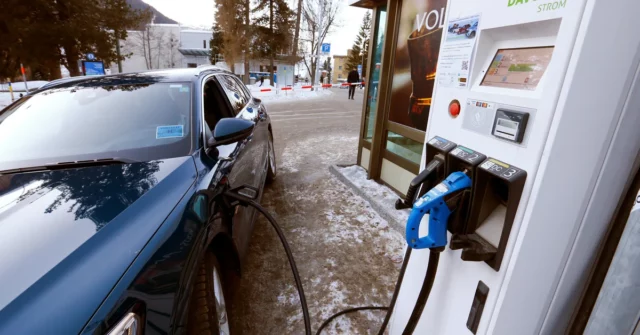UN Secretary-General António Guterres said developing countries pay the “appalling price” of the world’s dependence on fossil fuels, during a visit to areas of Pakistan hit by floods blamed on climate change.
Nearly 1,400 people have died since June in these floods, the intensity of which has been exacerbated by climate change. They were caused by the monsoon and covered a third of Pakistan — an area the size of the United Kingdom — destroying homes, businesses, roads, bridges and crops.
Guterres hopes his visit will encourage the international community to financially support the country, which needs — according to Islamabad estimates — at least $10 billion to rebuild damaged or destroyed infrastructure. A sum that Pakistan would find it impossible to raise on its own, due to its indebtedness.
For Guterres, financial aid “is not a question of generosity, it is a question of justice.” “Pakistan and other developing countries … are paying an appalling price for the intransigence of the big emitters who continue to bet on fossil fuels,” Guterres said before visiting the flooded areas of southern Pakistan.
Stop the madness
“From Islamabad, I launch a global call: stop this madness. Invest now in renewable energy. End the war against nature,” he said. The monsoon, which usually lasts from June to September, is essential for irrigating the plantations and for replenishing the water resources of the Indian subcontinent. But Pakistan had not seen such torrential rains in at least three decades.
“Collective Suicide”
On Friday, Guterres had already expressed his outrage at the indifference of the world, especially the most industrialized countries, in the face of climate change. “It’s crazy, a collective suicide,” he said.
“My heart goes out to all who have lost loved ones in this tragedy, and to all who have been affected by the loss of their homes, their businesses and their livelihoods,” the UN Secretary-General added.
Pakistan is responsible for less than 1% of global greenhouse gas emissions, but ranks eighth among the countries most threatened by extreme weather events, according to a study by the NGO Germanwatch. This year, the country has already faced a heat wave that in some cases exceeded 50°C, major forest fires and devastating floods caused by rapidly melting glaciers.

The floods affected some 33 million people, leaving them homeless, and brought down around 500 bridges. This Saturday, Guterres was due to visit the ancient city of Mohenjo Daro, listed as a UNESCO World Heritage Site and threatened by floods.
“If he comes to see us, may Allah bless him,” Rozina Solangi, a 30-year-old housewife from a village that was flooded near Sukkur in the south, said on Friday.
“All the children, the men, the women are roasting in this scorching heat. We have nothing to eat, not a roof over our heads. Something has to be done for the poor,” he added. The national meteorological office indicates that during the 2022 monsoon season it rained five times more than normal.
Bad weather triggered flash floods in northern mountain rivers, washing away roads, bridges and buildings in minutes, and a slow buildup of water in southern plains that submerged hundreds of thousands of square miles of land.
Hundreds of makeshift camps have sprung up in the few dry spaces in the south and west of the country. Elevated highways or railways are often the last places where water hasn’t washed away.
Fear of epidemics
With people crowded together, also with cattle, the appearance of epidemics is feared. Numerous cases of dengue fever, a disease spread by mosquitoes, and scabies have already been reported.

For those who have experienced shifts in consciousness and know that more peace, joy, and love awaits in a better living environment. A bold shared vision. A living community and hub for innovation. A sustainable ecosystem for living and working. A model for the new future.
